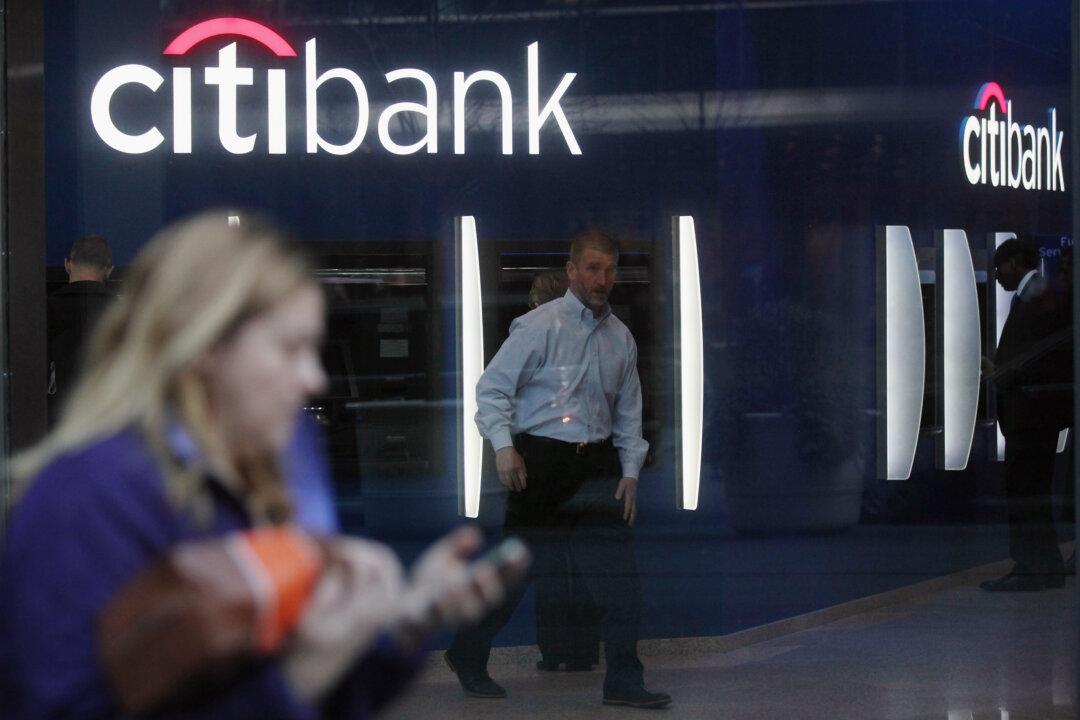NEW YORK—Citigroup’s profits rebounded in the second quarter from the same period a year earlier, when the bank recorded a huge legal settlement with regulators.
The bank said Thursday that it earned $4.57 billion after payments to preferred shareholders as the bank cut expenses across the board, sharply higher than the $102 million it earned a year earlier.
Citi’s second-quarter profits were basically erased last year after the bank recorded $3.8 billion in costs related to settling charges over its role in the housing bubble and subsequent financial crisis.
On a per-share basis, Citi earned $1.51, compared with 3 cents a year earlier. Adjusted earnings were $1.45 a share, due to a six-cent accounting adjustment tied to value of Citi’s debt holdings, but that still beat the $1.35 per share that financial analysts were expecting.
Citi’s global consumer banking division, which includes Citi’s U.S. retail banking chain, credit cards, as well as its consumer banking business in Latin America and Asia, had net income of $1.63 billion. That’s up 4 percent from a year ago, helped by a drop in expenses.
Like Bank of America and JPMorgan Chase, Citi has been looking to cut expenses in its consumer banking division through branch closures, layoffs and other measures. The bank had 15 percent fewer branches than it did a year ago, Citi said.
Citi saw a drop in trading revenue compared to the first quarter, in line with other major banks, as financial markets became less volatile. Fixed income, currency and commodity trading revenue declined 12 percent from the first quarter to $3.06 billion, while stock trading revenue fell 25 percent.
Citi Holdings, the bank’s so-called “bad bank” that holds the bad mortgages and other toxic securities left over from the financial crisis, made a modest profit in the quarter of $157 million compared with the $3.4 billion loss the business had a year ago.
Citi has been winding down and selling off assets in Citi Holdings for several years. Since last year, the division has been making small profits each quarter. Assets in Citi Holdings were $116 billion, down 22 percent from a year earlier.
Under CEO Michael Corbat, Citi has been trying to become a slimmer, more efficient company and so far, the strategy is working. The bank passed the Federal Reserve’s so-called stress test earlier this year, after failing in 2014. Citi was able to raise its quarterly dividend to 5 cents a share in March, the bank’s first increase since the 2008 financial crisis.
Net revenue at the bank totaled $19.47 billion, compared with $19.43 billion in the same period a year earlier.
Citigroup’s stock rose $1.52, or 2.7 percent, to $57.99 in early morning trading.





